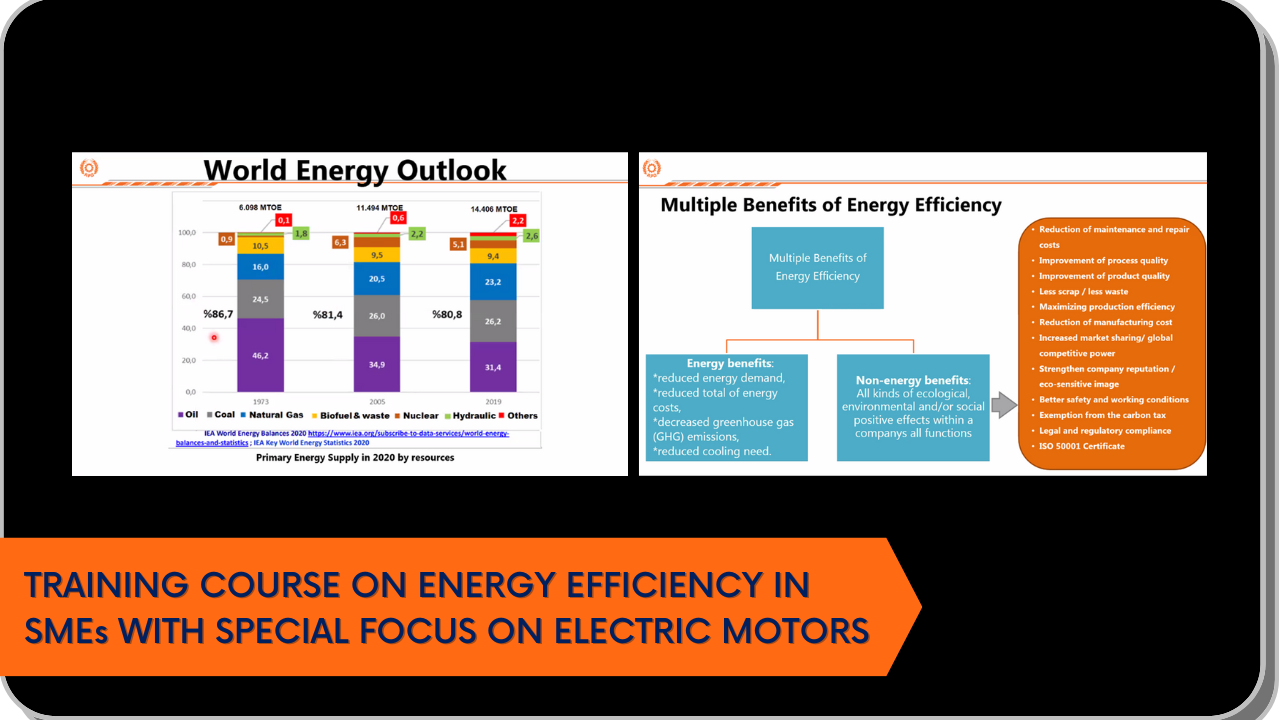
Select Page

The Ministry of Industry and Technology, Turkiye, and Asian Productivity Organization (APO) Secretariat organized a digital multicountry training course on Energy Efficiency in SMEs with Special Focus on Electric Motors, 11–14 October. The course provided an overview of technology trends in energy management and steps to improve the operating efficiency of electric motors. Thirty-one participants from APO member economies attended, along with four resource persons, one from Denmark, one from Portugal, and two from Turkiye, who shared information on opportunities, operating practices, policy frameworks, and energy conservation options.
Electric motors are used in almost all sectors of industry as well as the commercial, residential, transportation, and agriculture sectors. With urbanization and industrialization increasing globally, motor use is also increasing, contributing to CO2 emissions and climate change. Minimizing power losses as motors convert electrical to mechanical energy can contribute to more sustainable development.
The training course focused on energy efficiency and management, methods to improve the energy performance of enterprises, and characteristics of electric motors. It shared information on identifying energy conservation opportunities, assessing electric motor performance, and financing energy conservation projects. Participants conducted group work on case studies of improving the energy efficiency of motors.
Although more stringent efficiency standards are being adopted, regulatory measures are mainly applicable to new motors. Achieving current climate goals under the 2015 Paris Agreement requires a focus on the role of efficiency in the energy transition. The three-day training course was aligned with the APO Green Productivity concept of enhancing productivity and profitability with the least environmental impact. With the information on approaches to conserving energy in motors acquired during the course, the APO expects participants to implement and disseminate them to create multiplier effects.